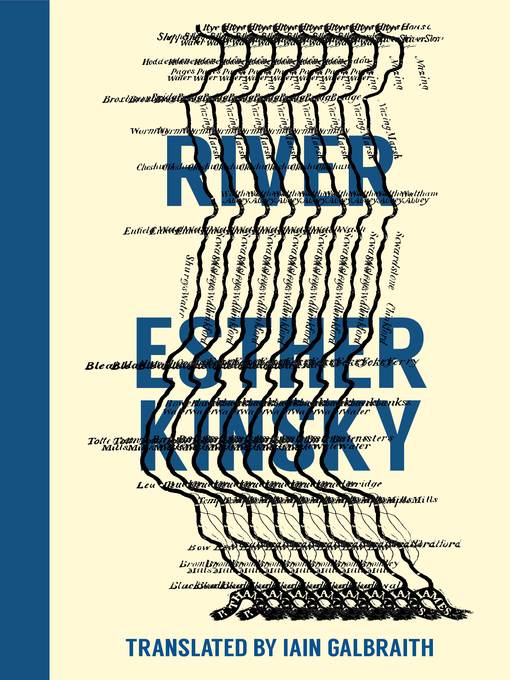
River
- اطلاعات
- نقد و بررسی
- دیدگاه کاربران
نقد و بررسی

July 16, 2018
Rivers provide settings for this meditative, melancholy novel from Kinsky (Summer Resort) in which an unnamed narrator’s observations of flora and fauna, immigrants, outsiders, and displaced persons, are presented like photographs for review and reflection. The novel begins after the narrator abandons her London job to move into a neighborhood at the city’s edge. Unsure where she will go next, she walks along marshes and inlets, takes pictures (photographs accompany the text), collects small objects, and recalls the past: childhood in postwar Germany; motherhood in Canada; witness to calm or flooding waters in Poland, Hungary, Croatia, India, and Israel. Like her neighbors—a Jewish greengrocer, a Pakistani who runs an internet café, a Croat who runs a shop for Bosnian refugees, an exiled African King—the narrator feels her foreignness. Kinsky’s lyrical prose includes descriptions of barges, houseboats, tree stumps, an office full of cubbyholes, and a street filled with religious celebrants. Chronology and story line remain elusive in a sometimes disjointed, sometimes gloomy narrative, as Kinsky focuses not on connecting events but on capturing relationships: between photography and memory, disaster and loss, water and yearning for home.

July 15, 2018
Walks beside the river inspire one woman's memories and meditations.German author Kinsky's (Summer Resort, 2011) latest book to appear in English is a slow, painstaking meditation on walking and rivers and the power of observation. It's being marketed as a novel, but it could just as easily have been branded a book-length essay. The unnamed narrator, who grew up on the shores of the Rhine, is now living in London, where she takes frequent walks by the River Lea, a tributary of the Thames. The book is made up of the observations she makes as she walks there as well as in her own neighborhood. There is, for example, the "thin-lipped Croat" who runs a secondhand shop nearby. Or there's Greengrocer Katz, who serves the area's many observant Jews. The narrator is, to say the least, a wanderer, and her observations of London are interspersed with reminiscences of other places she's passed through--Canada, Bosnia, and elsewhere. These meditations can be slow going, especially for anyone who doesn't seek out lengthy descriptions of shrubbery. You become almost desperate for some small semblance of action--nothing so crude as a plot, certainly, but at the very least for someone to say something. Needless to say, there is little dialogue, little that is external to the narrator's mind. Certain hints do loom--to wartime, to the unnamed narrator's unnamed son--but these fail to resolve themselves.A ponderous, meandering work that leads nowhere definitive.
COPYRIGHT(2018) Kirkus Reviews, ALL RIGHTS RESERVED.




دیدگاه کاربران